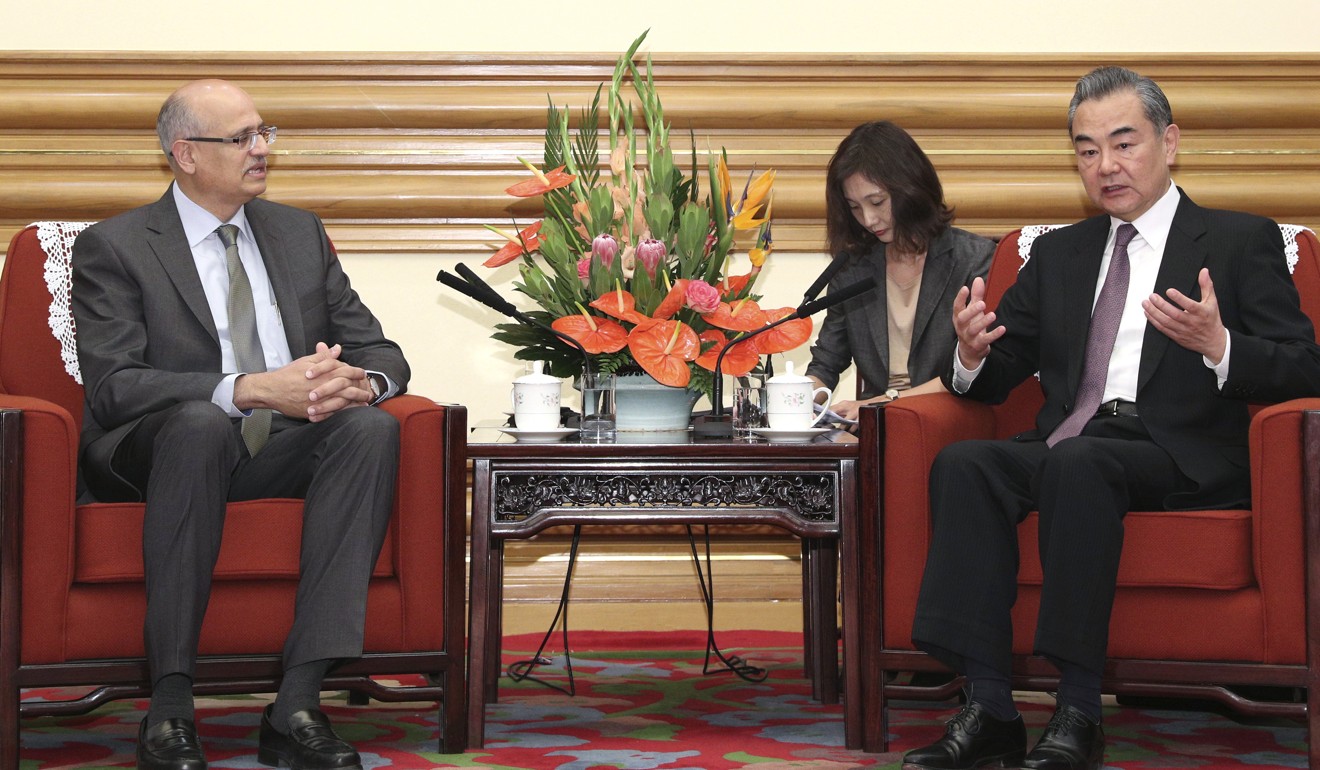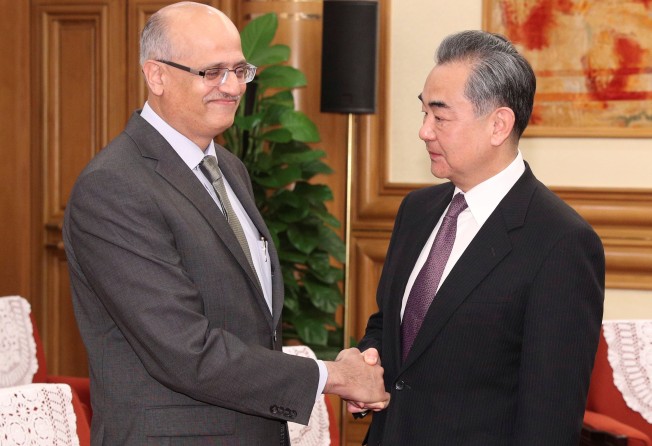
China, India exchange views on ‘issues of common interest, including Indo-Pacific’
- Indian Foreign Secretary Vijay Keshav Gokhale meets Chinese Foreign Minister Wang Yi and other top diplomats as part of ‘regular exchanges’
- Visit comes amid tensions over Beijing’s refusal to sanction a Pakistani militant leader and ahead of Belt and Road Forum, which India won’t attend

Indian Foreign Secretary Vijay Keshav Gokhale on Monday wrapped up a two-day visit to Beijing, where he met top Chinese diplomats amid ongoing tensions over regional geopolitics and China’s New Silk Road plan.
The visit comes as New Delhi is dismayed over Beijing’s refusal to sanction the head of a Pakistan-based militant group, and days before China’s Belt and Road Forum – a key diplomatic event to be attended by 37 foreign leaders, but not India.
Gokhale sat down with Chinese Foreign Minister Wang Yi at the Zhongnanhai government compound on Monday morning as part of “regular exchanges” between the countries. Both sides called for more cooperation, after an informal meeting between Chinese President Xi Jinping and Indian Prime Minister Narendra Modi in Wuhan, Hubei province last year.
The summit evoked the eponymous “Wuhan spirit” to reset bilateral ties after a tense border stand-off at Doklam in 2017 that led the two powers to the brink of war.

Wang said in remarks before the meeting that the two neighbours should work to continue strengthening their communication, coordinating on major affairs and enhancing mutual trust, according to Chinese state media.
“The common interests of both sides far outweigh differences,” he was quoted as saying.
India’s Ministry of External Affairs said in a statement that the two sides had reviewed progress on bilateral relations since the Wuhan summit and discussed their agenda for the next few months, as well as exchanging views on “regional and international issues of common interest, including the Indo-Pacific”.
“We will work together with the Chinese side to deepen understanding to strengthen trust to implement the decisions that were taken by leaders and to do it in a manner in which we are sensitive to each other’s concerns,” Gokhale said, according to Indian media reports.
Gokhale was expected to raise the issue of Beijing’s continued efforts to prevent the United Nations from designating Masood Azhar, leader of the Pakistan-based terror organisation Jaish-e-Mohammed (JeM), as a global terrorist, meaning he would face an assets freeze, travel ban and arms embargo.
Calls to blacklist Azhar have intensified after JeM, which is on the UN sanctions list, claimed responsibility for a bloody attack in February on Indian security forces in Pulwama, which lies in the Indian-administered part of the restive Kashmir region.
Analysts say China’s actions have been perceived in India as being done at the behest of Pakistan, given that Beijing and Islamabad are “all-weather” strategic partners cooperating on the China-Pakistan Economic Corridor (CPEC) under the “Belt and Road Initiative”.
India has refused to join the infrastructure development scheme over sovereignty concerns about the CPEC, which runs through disputed Kashmir that New Delhi and Islamabad both claim.
Gokhale also met Chinese vice-ministers of foreign affairs Kong Xuanyou and Le Yucheng, as well as deputy director of the Foreign Affairs Commission Liu Jianchao, according to the Chinese foreign ministry.
Zhang Jiadong, an international relations professor at Fudan University in Shanghai and former diplomat at the Chinese embassy in India, said the Chinese stance on the Azhar issue was that anti-terrorism efforts should not be politicised and serve as a means for one party to isolate another.
“This problem has gone on for several years and it is unlikely that an agreement can be reached in a visit like this,” he said.
“In reality, whether or not to list [Azhar] on the UN list has limited significance for counterterrorism activities. The important thing is to establish a stable India-Pakistan relationship.”